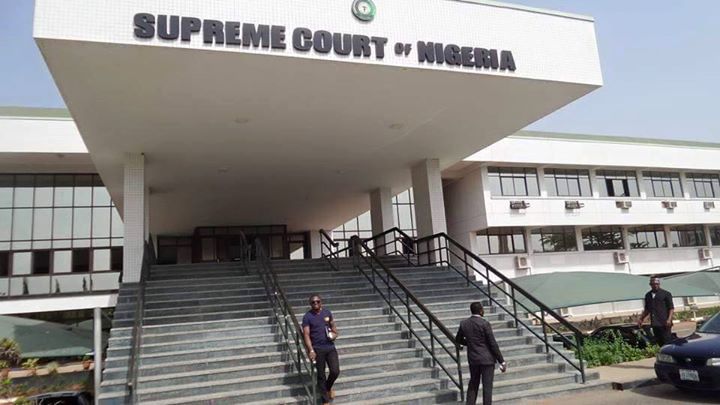Michael Onwuka, Enugu
The Supreme Court has upheld the de-registration of 22 political parties by the Independent National Electoral Commission, INEC.
Justice Ejembi Eko in a judgment delivered on Friday in Abuja, voided and set aside a judgment of the Court of Appeal, Abuja Division which had nullified the de-registration.
Recall that INEC had on February 6, 2020, de-registered 74 political parties for their failure to win any political office in the 2019 general election.
The Advanced Congress of Democrats, ACD, and 21 other parties had challenged their scrapping by INEC at a Federal Hugh Court, Abuja.
In its judgement on June 11, 2020, the Federal High Court dismissed the suit on the grounds that INEC was empowered by law to de-register parties that failed to win elections.
The court pointed out that Section 225(a), (b) and (c) of the 1999 Constitution (as amended) could be construed disjointively to imply that INEC possesses the power to deregister parties.
But when the matter was taken to the Court of Appeal, Abuja, the appellate court, in its judgment in August 2020, held that although INEC could de-register parties, it was wrong to have done it while the case of the political parties was pending in court.
Then INEC in an appeal marked: SC/485/2020, approached the Supreme Court on further appeal.
Delivering judgment in an appeal instituted by INEC against the judgment of the Court of Appeal, Justice Eko held that the Appeal Court on its own (suo motu) raised the issue of lack of fair hearing in favour of the 22 scrapped parties and arrived at a conclusion without hearing from other parties in the matter.
“This appeal by INEC is meritorious and is hereby allowed. The decision of the court below is set aside,” he held.
The apex court held that the Court of Appeal took out the issue of fair hearing out of the contemplations of the notice of appeal filed by the political parties but refused to do the needful in order to be fair to others in the matter.
The Supreme Court said that the Court of Appeal erred in law by raising the issue of fair hearing in favour of the political parties suo motu and declined to give opportunity to other respondents to address it on the matter in order to arrive at a just conclusion.
Eko said that proceeding to give judgment in such a situation as done by the Court of Appeal “ran foul of the pillar of the same fair hearing and as such its findings and conclusion cannot stand.”
“It is not the basic functions of any court to raise a fundamental issue suo motu and come to the conclusion without being addressed by parties in the matter. Such action runs foul of the pillar of the fair hearing itself,” Eko held.

